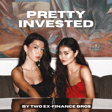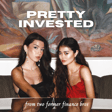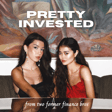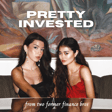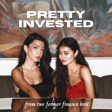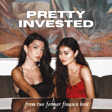
Confessions of a Founder, Model and Designer - Balancing Hustle with Feminine Energy
On this episode, Eleanor and LD chat with *renaisance woman* Joyce Chiu. Joyce joins us to talk about her post-natal wellness startup, NUEMA and the trials and tribulations of being a serial entrepreneur, where she gets her motivation from, and her lessons from living many lives in e-comm, fashion, tech startups, and now wellness.
You can follow Joyce on LinkedIn at https://www.linkedin.com/in/cchiu888/ or on Instagram at https://www.instagram.com/joyceechiu/
You can find us on YouTube, TikTok, and Instagram at:
https://www.youtube.com/@PrettyInvestedMedia
https://www.tiktok.com/@prettyinvestedmedia
https://www.instagram.com/prettyinvestedmedia
Pretty Invested Media and this related information does not constitute professional or financial advice of any kind (including business, employment, investment advisory, accounting, tax, and/or legal advice). Advice from a suitably qualified professional should always be sought in relation to any particular matter or circumstance.
